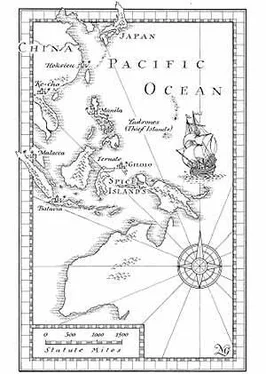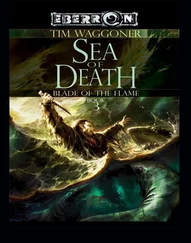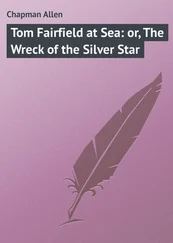Musallam had kept a space for them. He was in great good humour. ‘I’ll be happy to purchase your bird skins from you. They’re very valuable,’ he said as Hector and his friends joined him cross-legged on the carpet.
Hector found it impossible to concentrate on the food or the bantering conversation of his companions. Only the Omoro menfolk sat down to eat. Their wives had withdrawn to a discreet distance and were standing, looking on. Occasionally one of them might come forward to help the women from the palace kitchens, who were replenishing the piles of food.
‘Hello, what’s this?’ said Jacques. He reached forward and picked up a dark-purple fruit from a pile in front of him. It was the size of an apple and had a smooth, glossy skin. He turned it over in his hand and looked enquiringly at the Malaccan.
‘Don’t eat the rind,’ advised Musallam. He beckoned to one of the servants hovering in the background, took a short knife from her and cut the fruit in half. ‘Here, try the white part in the middle,’ he said, using the point of the knife to prise out a chunk of creamy-white pulp.
Jacques popped it in his mouth and chewed thoughtfully. ‘Remarkable. Sweet and sour at the same time. Somewhere between a peach and a lemon.’
‘Mangosteen,’ said Musallam. He leaned back with a contented sigh. ‘The four of you have proved the truth of an old saying that we have at home, “When the junk is wrecked, the shark gets his fill”, though in your case you wrecked your ship deliberately.’
Hector was aware that serving women were passing behind the line of guests, offering bowls of water in which to wash their hands and a towel to dry them. He wondered where and when he would be allowed to meet Maria.
‘We say “It’s an ill wind that blows nobody any good”,’ he remarked. The silk sash around his waist was uncomfortable. It had ridden up his waist when he sat down, and he paused to adjust it. A serving woman was at his elbow, kneeling, and had placed a bowl of water before him. Absent-mindedly he rinsed his fingers and then she handed him a small towel. As he took it, his fingers felt a small, hard object within the cloth. He shook it out and the two-real coin fell into his palm. Startled, he swung around. The serving woman was modestly dressed in Omoro style in a plain green sarong and a short overjacket, her features concealed by a long white veil. He reached out tentatively and, when the woman did not withdraw, lifted aside the veil.
Maria’s eyes regarded him, mischievously.
He lurched to his feet, his heart pounding. His mouth was dry and he felt unsteady, as if he was not in full control of his legs. The others looked up from their meal, and Jacques waved his mangosteen, the juice leaking down his chin. ‘Off you go. You have your whole future to discuss,’ he grinned.
Hector took Maria by the hand. He held on as if she would disappear again if he released his grip. By unspoken agreement they slipped away from the assembled company and, with Maria leading the way, hurried through the Kedatun sultan and out on to the portico in front of the palace. The guards ignored them as they made their way to the edge of the hill and stopped at last, looking out at the harbour. Hector could see Musallam’s jong far below.
‘I should have recognized you sooner,’ he confessed, turning towards her. ‘The costume suits you.’
‘As does yours,’ she said with a smile. He glanced down at his own white pantaloons and silk belt, and realized he was still holding the Spanish silver coin in his other hand.
‘How did you know which side to select?’ he asked.
‘At first I nearly chose the side that had the names of the rulers, Charles and Johanna. I imagined you’d have picked them because you thought them to be a couple, King and Queen, man and wife as you want us to be. Then I realized and changed my mind.’
‘Realized what?’ he asked, though he had a shrewd idea.
‘Charles and Johanna were not man and wife, but son and daughter. She was Johanna the Mad and he ruled in her name while she was still alive.’
‘So you chose the two pillars?’
She looked at him seriously. ‘For a good reason.’
For a moment Hector was at a loss. ‘You mean “Spain and the Indies” because we find ourselves in the Orient?’
She shook her head. ‘Every child in Spain knows that the two pillars are those that Hercules set up at the Straits of Gibraltar to mark the end of the world. But Charles, when he came to the throne, changed that. He took the two pillars as his emblem, and added the motto “plus ultra” – “more beyond”.’ She paused. ‘I thought there could be no better watchword for our future.’
Hector looked at her admiringly. Maria was so calm and so certain. ‘That ship down there,’ he said, ‘it sails tomorrow for Malacca. The captain has offered to take us with him.’
‘I know,’ she said simply. ‘There’s not much that escapes the ears of the harem.’
‘In Malacca we’ll be able to find someone who can marry us properly, if that’s what you want.’
‘And what happens then? Where do we go?’ Maria asked softly.
‘I don’t know,’ Hector answered truthfully.
Maria regarded him with her large dark, solemn eyes. ‘If you’re caught and identified in the Spanish territories, you’ll be arrested, tried and executed as a pirate. My testimony won’t save you a second time.’
‘I’m willing to take that risk.’
She gave a small, tender smile. ‘But I love you too much to let you.’
His heart went out to her. He gazed over the harbour. The sea beyond had turned a deep indigo-blue in the afternoon sun, and on the horizon a procession of low clouds, touched with grey, drifted southwards. He thought of the impending monsoon winds, which Musallam had promised would carry them to Malacca. ‘Somewhere out there must be a place where we can live together, where we’ll be left alone,’ he said.
Maria lifted her chin defiantly. ‘Together we can find it. When I was a child back in Andalusia, my father used to encourage me by translating the words on the coin as “ever further”. Let that be our private motto.’
Hector slipped an arm around her waist and held her closer. Already, in the back of his mind, an idea had begun to take shape. He squeezed the silver coin tightly, felt the edge bite into his palm. ‘The waves beneath the pillars represent the vastness of the ocean,’ he said. ‘It will mean another voyage and, this time, to sanctuary.’
HISTORICAL NOTE
Several of the sea robbers whom Hector Lynch encounters in his Pacific adventure are known to history. So too are three of the ships on which he sails. The Bachelor’s Delight was particularly notorious, and her picture has been identified on an early eighteenth-century map of the Americas. Originally a Danish slave ship, she was seized in 1684 off the West African coast by John Cook, a seasoned buccaneer. The Delight was then adapted as a pirate raider by reducing her upper works so that she sailed more handily. Under Cook she was taken round the Horn and into the Pacific to begin four years of piratical cruising. When Cook died of scurvy off the island of Juan Fernandez, Edward Davis took command. He had already taken part in the overland raid into the South Sea in 1680 (see Hector Lynch’s adventures in Corsair ) and proved to be one of the most competent buccaneer captains. In May 1688 Davis brought the Delight to Philadelphia, where she was sold, only to begin a second stint as a pirate ship. She reappeared in the Indian Ocean commanded by yet another sea robber, John Kelly. Based in the pirate havens of Madagascar, the Delight cruised for prey off the African coast before returning to New York.
Читать дальше








